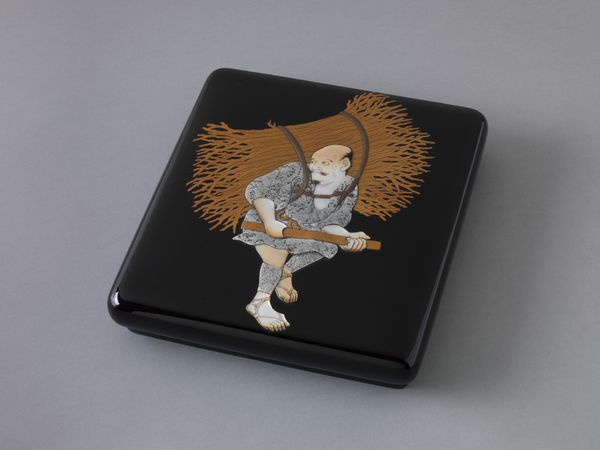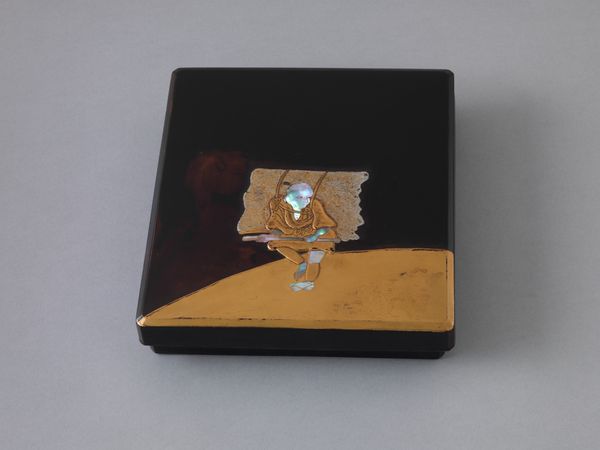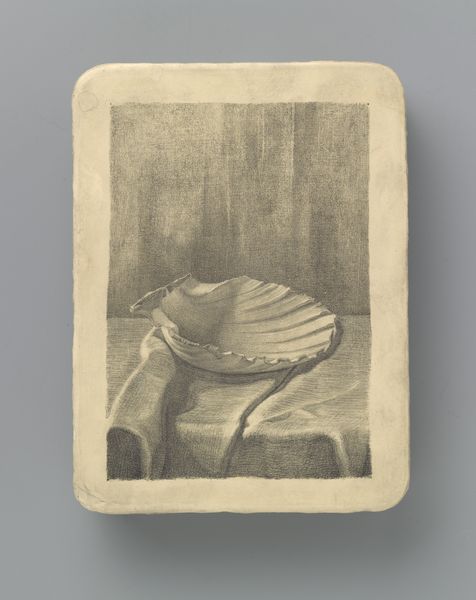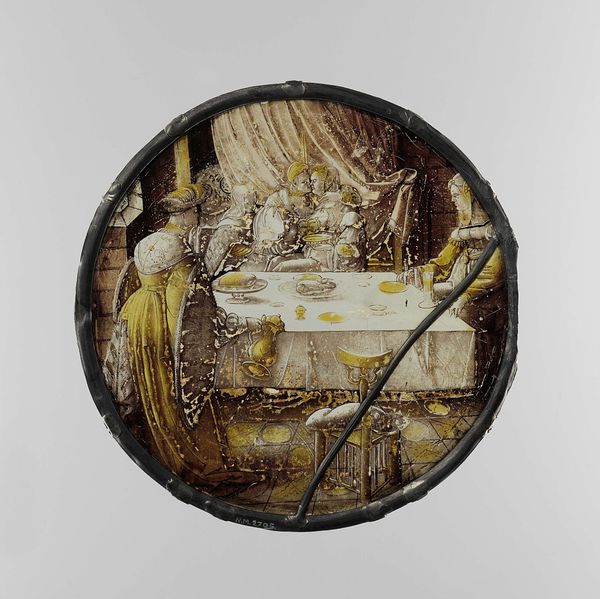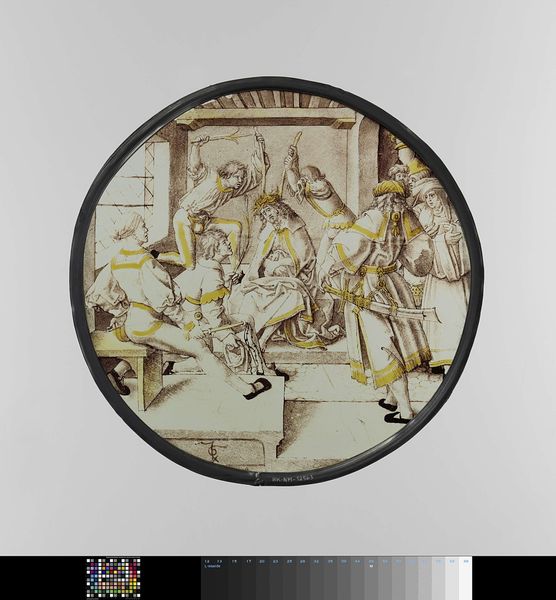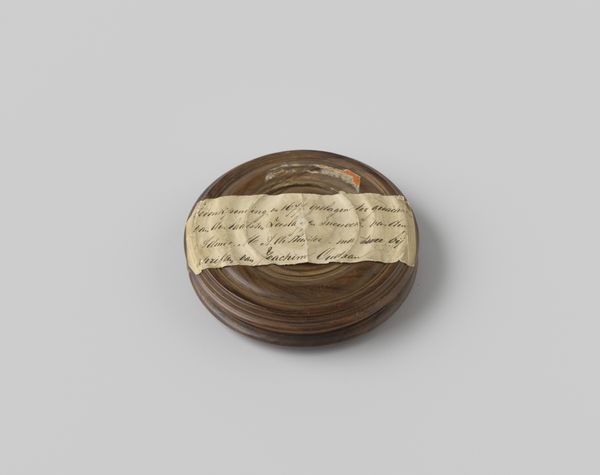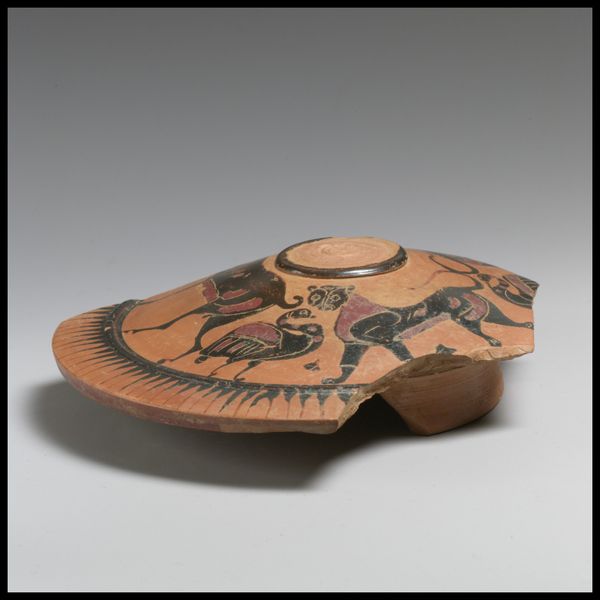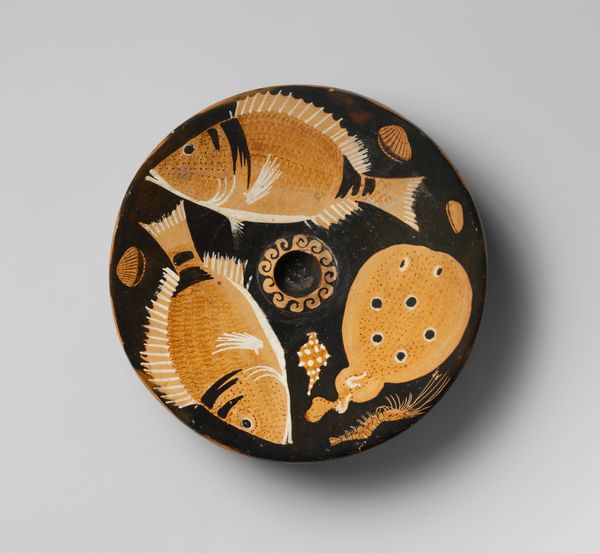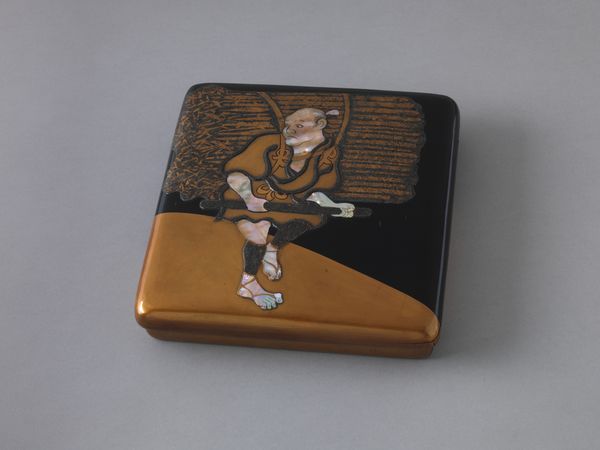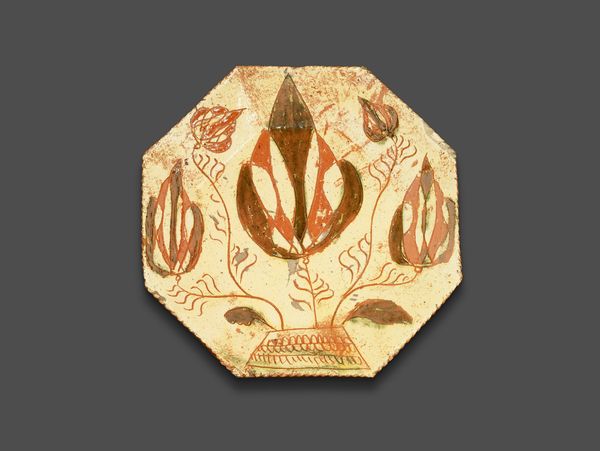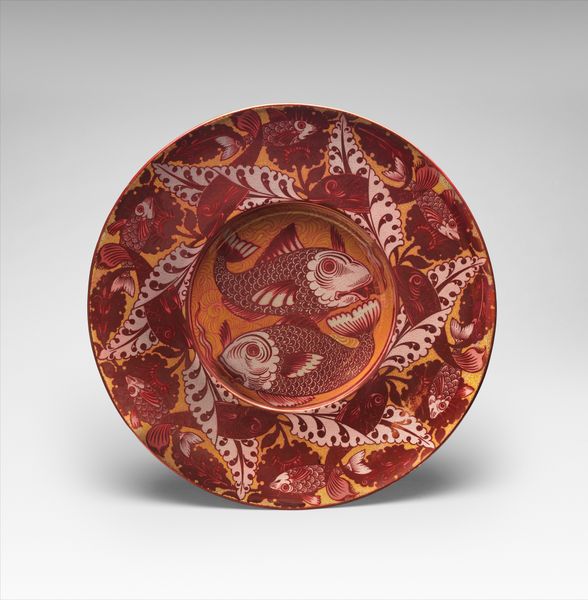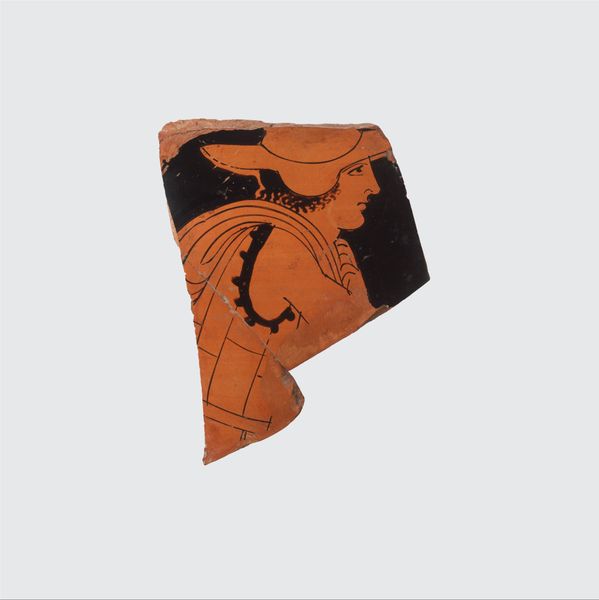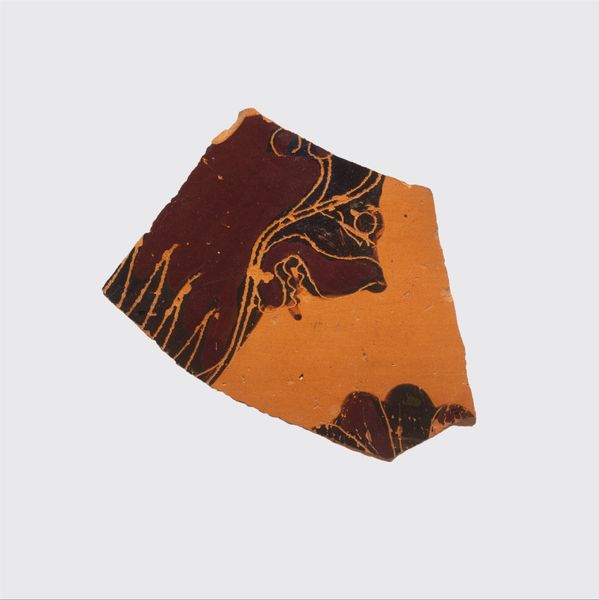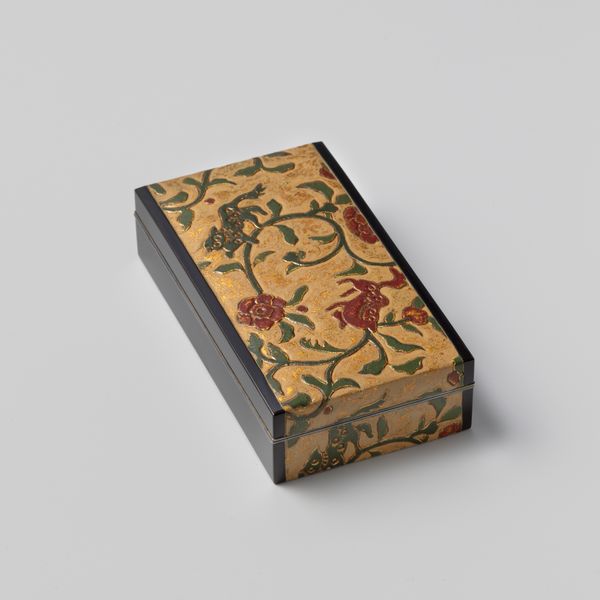
drawing, ink, wood
#
drawing
#
asian-art
#
figuration
#
ink
#
wood
#
decorative-art
#
miniature
Dimensions: H. 3 3/4 in. (9.5 cm); W. 9 in. (22.9 cm); L. 9 3/8 in. (23.8 cm)
Copyright: Public Domain
This writing box was created by Hon'ami Kōetsu in Japan, sometime between the late 16th and early 17th centuries. It is an example of Japanese lacquerware, incorporating mother-of-pearl inlay. It is an object of great refinement that speaks volumes about the social and cultural history of its time. The image depicts a humble woodcutter, yet the box itself would have been used by a member of the aristocratic class for the sophisticated art of calligraphy. In feudal Japan, calligraphy was not mere penmanship; it was a vital skill for the cultured elite, connecting them to a rich literary tradition and signaling their status. Boxes like this are important to the social historian because they bring together the seemingly disparate worlds of labor and elite culture. More research into family archives of the period might reveal exactly who commissioned such an object. The meaning of art is always contingent on such contextual knowledge.
Comments
No comments
Be the first to comment and join the conversation on the ultimate creative platform.
